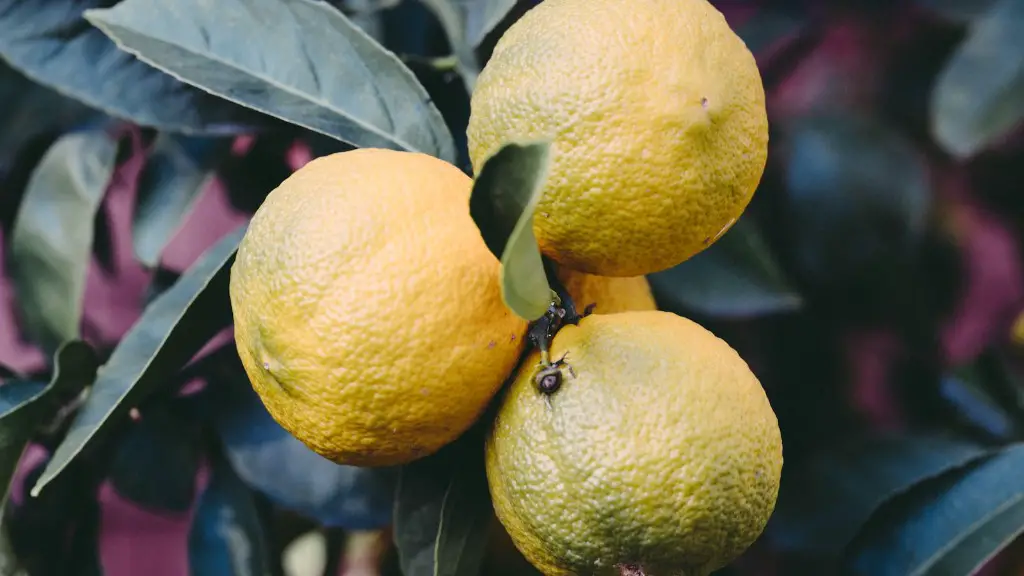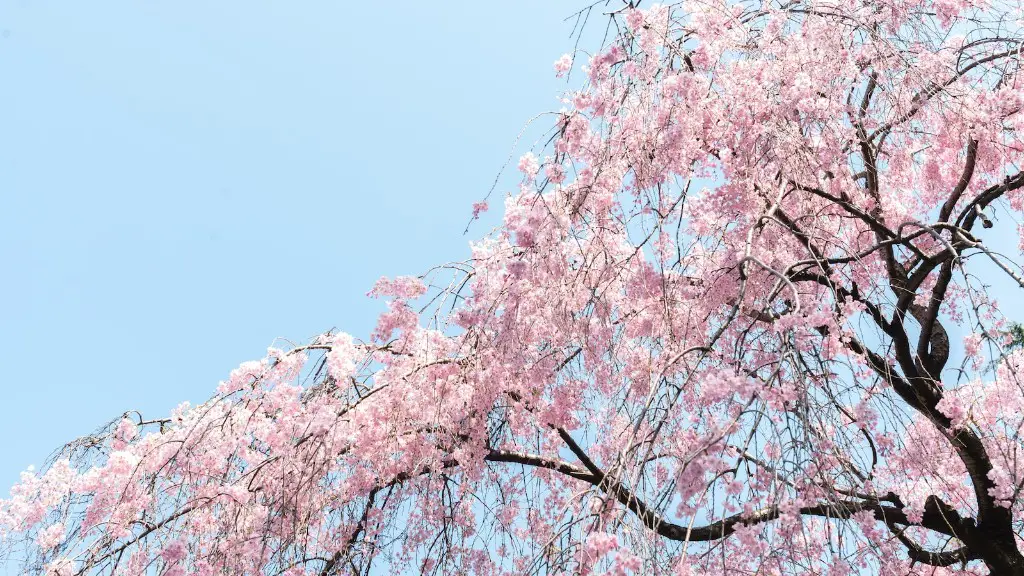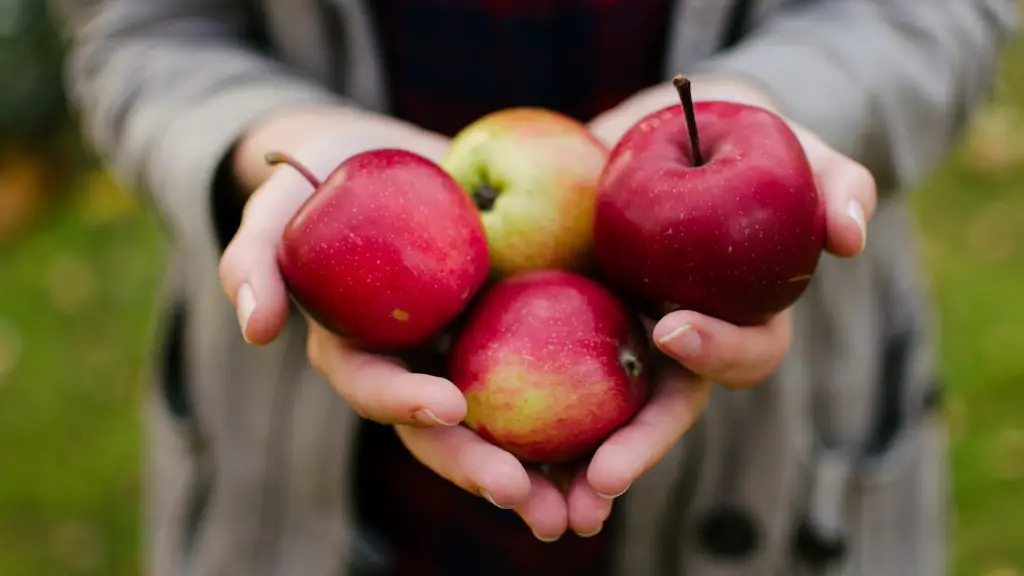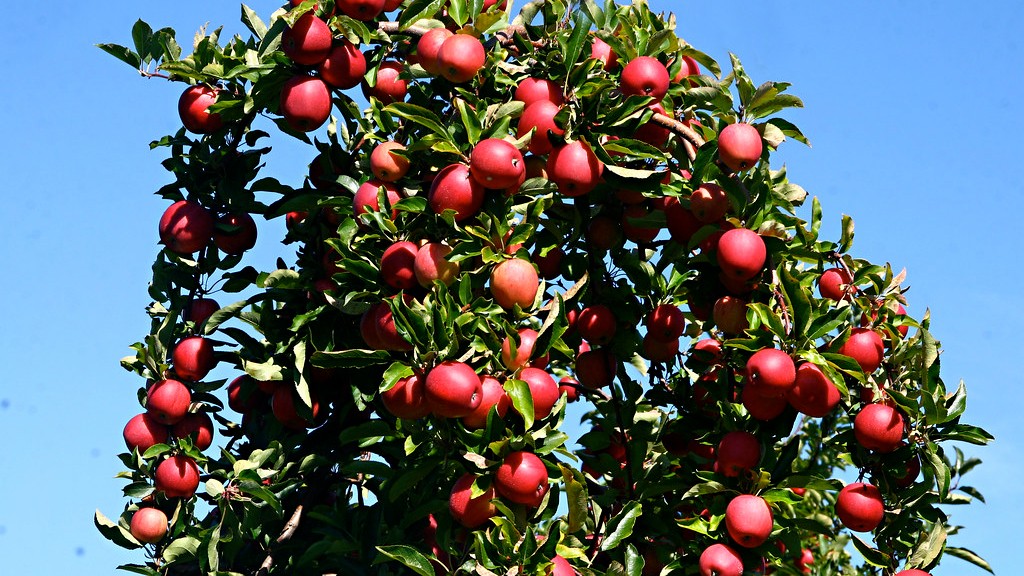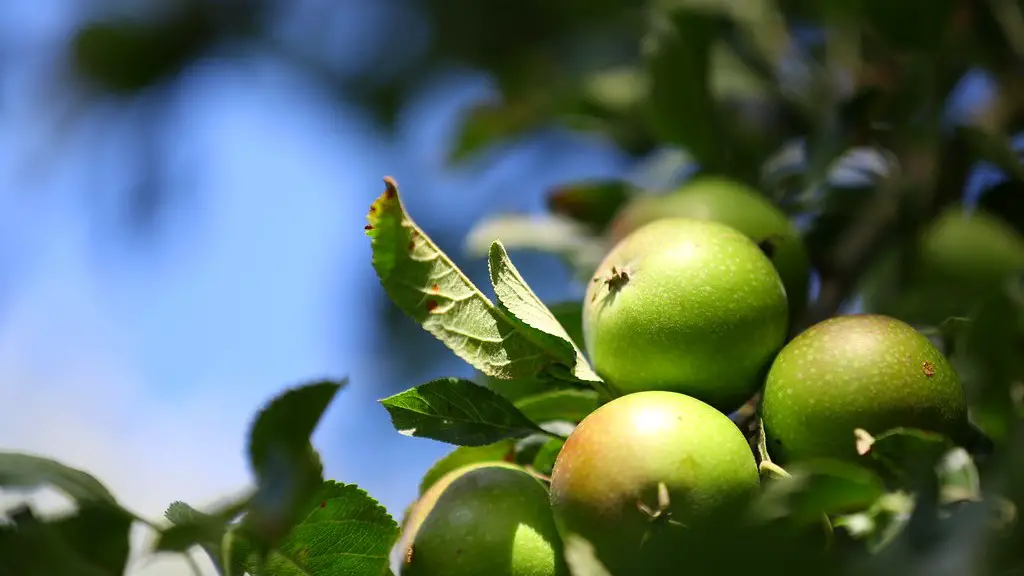The best fertilizer for a lemon tree is one that provides the necessary nutrients for optimal growth, health and production of high-quality fruit. Compost, manure and other organic matter increase the soil’s fertility, while chemical and mineral fertilizers provide a balanced supply of macro and micronutrients. In order for a lemon tree to reach its full potential, a blend of natural and man-made fertilizers should be used.
Organic matter like leaves, kitchen waste, grass clippings, straw and manure should form the core of a lemon tree’s fertilizer needs. Compost is particularly valuable, because it contains all the macro and micronutrients, plus beneficial soil microorganisms. Compost is broken down and released slowly into the soil, providing the vital building blocks needed for healthy growth. All at once, organic matter increases water and nutrient retention in the soil, allowing the tree to access them more easily.
While organic matter is essential for healthy trees, certain chemical and mineral fertilizers may also be important in specific circumstances. These fertilizers should supply nitrogen, phosphorus, and potassium, plus trace elements like iron, zinc, magnesium and other micronutrients. Generally the best fertilizer for a lemon tree is one that has a higher concentration of potassium, in order to promote the production of high-quality fruit.
In terms of application, the fertilizer needs of a lemon tree vary from area to area and from season to season. In general, the best practice is to apply a complete fertilizer solution at least once a year in mid-spring, to supplement the organic matter. How much to apply depends on factors such as the age and condition of the tree and the position and soil type. It is advisable to consult a local nursery for advice about the correct application rate.
Finally, when applying any fertilizer it is important to remember that the nutrition provided must be taken up by the tree’s roots. Watering the base of the tree after fertilizing is a good way to ensure that the fertilizer reaches the roots, and mulch will help to retain moisture. Following these simple steps and choosing a good, balanced fertilizer should help to keep your lemon tree healthy and productive.
Organic Fertilizers
Organic compost is a key fertilizer for lemon trees. This can be made from any combination of organic matter, such as kitchen scraps, grass clippings, and leaves. Compost features both macro- and micro-nutrients, and it ties up those nutrients, releasing them into the soil slowly over time. Compost also contains beneficial organisms for the soil, increasing the productivity of the lemon tree. This is ideal for any citrus trees, as it boosts their ability to use soil nutrients.
In addition to compost, manure can also be used as a fertilizer for lemon trees. Manure contains high amounts of nitrogen, phosphorus, and potassium, which are essential for any vegetation to reach its potential. These elements assist with all aspects of growth, from flowers and fruit, to leaves and roots. Additionally, manure helps with water retention, making it an ideal option for any dry climates. Although some manure may contain contaminants that can potentially damage a tree, manure can be beneficial and can be used responsibly.
It is also possible to use plant byproducts and cover crops for lemon trees. Soil will benefit from green manures, a layer of green material that is periodically flipped over, or added to the topsoil. This process will add nitrogen to the soil and helps with water retention, as well as keeping weeds at bay. Cover crops are an additional option, which are plants that are worked into the soil to provide organic matter and nutrients. Cover crops will help fertilize the lemon tree allowing it to reach its full potential.
Organic fertilizers are a great way to promote the health and stability of any lemon tree. Compost, manure, green manures, and cover crops are all useful options to implement when growing a lemon tree. Each of these fertilizers offer different benefits to the tree, while they are also environmentally friendly. As the dependence on chemical fertilizers can be potentially damaging, it is preferable to turn to natural, organic methods.
Inorganic Fertilizers
Inorganic fertilizer is a name given to manufactured or man-made concrete type fertilizer. Inorganic types of fertilizer generally contain three basic ingredients: nitrogen, phosphorus and potassium. These three elements are known as macronutrients- meaning the tree needs these components in larger quantities. Inorganic fertilizers can also contain other micronutrients or trace elements such as boron, copper, and zinc. Different inorganic fertilizers can be used for different phases of lemon tree growth.
Inorganic fertilizers generally work very quickly and can give the lemon tree a quick boost of energy. Generally, a faster uptake rate of nutrients is seen when using inorganic fertilizer than when using organic fertilizer. As such, if a tree is weak or has been recently planted, it may be worth considering the use of an inorganic source. Additionally, they are more convenient to purchase and often come in granulated or liquefied forms.
Inorganic fertilizers are a valid option given their ease of use. While they are easy to use, it is important to abide by precise amount guidelines as a device for plant health. Applying too much inorganic fertilizer can be a detriment as it can damage soil and vegetation, so it is important to be mindful of the type and quantity of nutrients being added.
Inorganic fertilizers are a viable fertilizer for many lemon tree owners. Through the use of nitrogen, phosphorus, and potassium, inorganic fertilizers are able to promote a boost of energy in the lemon tree. While it is important to be mindful of the amount of inorganic fertilizer being used, correct usage can be incredibly beneficial for the tree and its productivity.
Fertilizer Timing & Frequency
Whether organic or inorganic, the timing and frequency of applications are important considerations. Fertilizers should be applied during specific periods in order to accentuate the fertility of the soil, promoting productive and healthy growth. Generally, fertilizer application should take place in mid-spring and mid-fall. While growth in citrus trees can occur year-round, when the tree is in an active growth period is when the greatest boost will be seen.
The frequency of fertilization is also an important factor in its success. While amount will vary from tree to tree, as a good rule of thumb it is wise to fertilize every four to six weeks. This will ensure that the soil has the opportunity to make use of the nutrients that have been applied. This frequency also allows for changes in the type and amount of fertilizer used, ensuring that a good balance is kept.
Furthermore, it is important to be mindful of the weather on the day of fertilizing. If the tree is planted in a location that experiences a particularly dry or wet climate, fertilizer should not be applied. In dry climates, fertilizing can lead to fertilizer burn, while in wet climates, the nutrients will not properly be absorbed.
Timing and frequency are important considerations when applying fertilizer to a lemon tree. Although the type, amount and frequency of fertilizer will vary depending on the tree, a general rule of thumb is to apply fertilizer in the mid-spring and mid-fall, every four to six weeks. Additionally, it is important to be mindful of the weather on the day of application, as too much moisture or too little moisture can cause the fertilizer to be ineffective.
Fertilizer Tips & Best Practices
It is important to follow basic tips and best practices when applying fertilizer to a lemon tree. It is important to ensure that the foundation of the fertilizer is organic matter, like compost, manure or cover crops. This should be followed by specific fertilizers for specific stages of growth. Additionally, it is important to apply fertilizer in the proper amounts, and at the right times of the year.
Lemon trees should also be watered after fertilizing, helping to ensure that the fertilizers can penetrate the soil and reach the tree’s roots. Additionally, mulch can be applied to the top of the soil. This will help protect and stabilize soils from extreme environmental conditions. Mulch will also help with water retention, and will prevent weeds from taking root.
Finally, it is important to regularly monitor tree health. Depending on the type of root system the tree has, it may be necessary to prune or remove weeds that may be blocking the roots’ access to fertilizer. It is also important to monitor pests and disease, as these can quickly sap all the nutrients from the soil. If these conditions are present, a pest or disease management regime should be established as soon as possible.
Fertilizing a lemon tree requires a basic knowledge of organic and inorganic fertilizers, as well as awareness of the timing and frequency with which they should be applied. Additionally, following basic tips and best practices is important to ensure a secure foundation, and that the fertilizer can be absorbed by the tree’s roots. Regularly monitoring tree health is also essential to ensure that the tree remains healthy and is able to reach its full potential.
